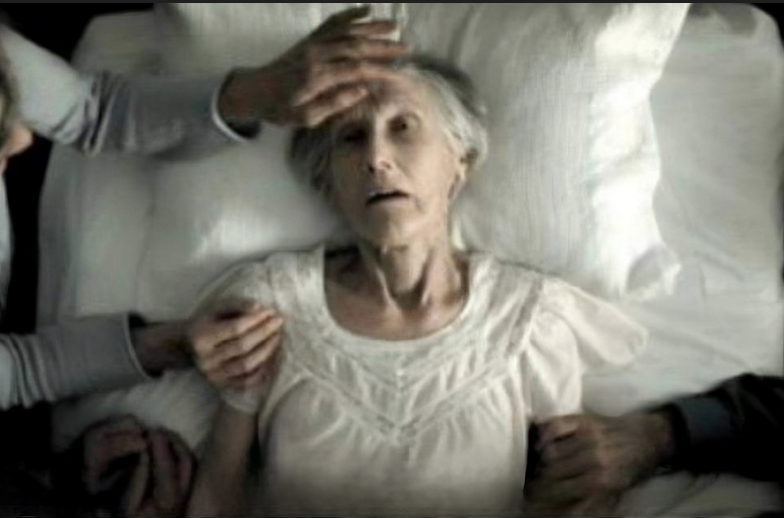In today’s fast-paced world, we’re often caught in a constant race to achieve more, be more, and work harder. It’s easy to get swept up in daily demands, leaving little room to reflect on our personal choices. But when life is winding down, and death feels near, many find clarity about what truly matters.

Bronnie Ware, a palliative nurse who cared for patients in their final weeks, noticed common regrets among the dying. In her book, “The Top Five Regrets of the Dying: A Life Transformed by the Dearly Departed,” she shares powerful insights gathered from conversations with patients facing their last days. These reflections offer us a glimpse into what people often wish they had done differently, providing valuable lessons for those of us still living.
1. Living Life True to Yourself, Not Others
The most common regret Ware encountered was this: “I wish I had the courage to live a life true to myself, not the life others expected of me.” This regret stemmed from unfulfilled dreams and desires that were set aside to meet societal, familial, or career expectations.
Most people realize too late that they never pursued their own ambitions. They often settled into roles defined by others, missing the chance to create a life aligned with their true values. This serves as a powerful reminder to evaluate whether our current paths reflect our personal goals and inner desires. Living for others may keep the peace, but it can leave a hollow feeling when life reaches its twilight.
2. The Regret of Overworking
Another major regret, especially among male patients, was: “I wish I hadn’t worked so hard.” In pursuit of professional success, many sacrificed precious moments with loved ones. Ware notes that many men, in particular, expressed deep regret for missing significant events in their children’s lives and for not nurturing their relationships.
We often think that working harder is the key to a better life, but many find that it leads to missing out on personal milestones. The race for career advancement, accolades, and wealth often overshadows the need for emotional fulfillment. Reflecting on this, consider finding a better work-life balance, valuing moments over material gains, and recognizing that family memories can’t be replaced.
3. The Courage to Express Feelings
“I wish I had the courage to express my feelings.” This regret reflects how many suppressed their emotions to avoid conflict or judgment. Over time, this leads to frustration, resentment, and even health problems. Many of Ware’s patients wished they had been more open and honest about their feelings, even if it led to temporary discomfort or disagreements.
Embracing vulnerability is key to living authentically. When we share our true thoughts, we allow deeper connections and healthier relationships. Yes, honesty can be risky, but the alternative—a life filled with bottled-up emotions—is much worse. It’s important to remember that expressing our feelings doesn’t always bring us closer to others, but it can free us from toxic relationships.
4. Nurturing Friendships Over Time

Another significant regret: “I wish I had stayed in touch with my friends.” Life’s busyness often causes us to neglect meaningful relationships, with many only realizing their importance during the final weeks. Loneliness is a common feeling among the dying, as they often regret not maintaining connections with old friends.
Friendships offer emotional support, shared joy, and a sense of belonging that enriches our lives. While it’s easy to lose touch due to hectic schedules, nurturing friendships can be as simple as regular phone calls, visits, or heartfelt messages. True friends are like a safety net, bringing comfort and joy, especially during tough times.
5. Choosing Happiness

The final regret Ware observed was this: “I wish I had let myself be happier.” Many patients regretted not allowing themselves to be happy, often due to fear of change or guilt about prioritizing joy. They got stuck in comfort zones or negative patterns, never daring to chase a more fulfilling life.
Happiness is a choice. It isn’t merely the result of perfect circumstances but a mindset we create by embracing positivity, new experiences, and the willingness to let go of unnecessary worries. Ware’s insights encourage us to prioritize joy, find humor in daily life, and allow ourselves to embrace simple pleasures, even in uncertain times.
Conclusion: Embrace Life’s Lessons Early
Bronnie Ware’s experiences with the dying offer profound lessons for the living. At the end of life, the things that matter most aren’t wealth, achievements, or social status, but authenticity, relationships, and happiness. By aligning our lives more closely with these core values, we can minimize the potential for regret. Don’t wait for the end to reflect on your choices—start living authentically now, cherish the relationships you have, and always make space for joy.


